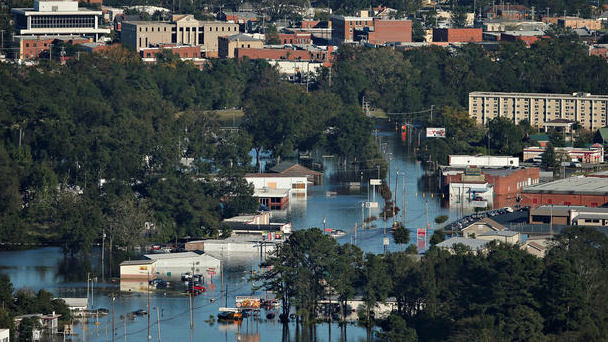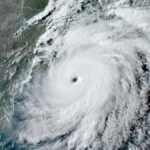By Julie Berry, Contributing Writer
Hurricane Matthew struck Florida Thursday evening, after leaving a trail of devastation in the Caribbean. The powerful storm peaked on Sept. 30 as a Category 5 hurricane with sustained winds reaching 160 miles per hour. Matthew made landfall in the Caribbean nations of Haiti and Cuba on Oct. 4 before weakening to a Category 3 storm as it reached the Florida coast.
Florida Governor Rick Scott urged millions of people to evacuate coastal regions ahead of the hurricane’s impact. “This storm will kill you,” Scott said, according to the Miami Herald. “If you’re in an evacuation area, get out. Don’t take a chance.”
As of Oct. 8, at least four storm-related deaths had been reported in the United States. Loss of life was much more extensive in the Caribbean, particularly in Haiti, where almost 900 people were killed by Hurricane Matthew. That number is expected to rise as aid workers reach areas made inaccessible by hurricane damage and debris.
“The death toll is rising on an hourly basis,” Shasta Darlington, international correspondent for CNN, said.
Haiti also suffered extensive structural damage along its southern coast. According to the BBC, some cities have been 90 percent destroyed.
[perfectpullquote align=”right” cite=”” link=”” color=”” class=”” size=””]“This storm will kill you. If you’re in an evacuation area, get out. Don’t take a chance.”[/perfectpullquote]
The scope of this devastation has also made the spread of disease another major concern for the island country. Cholera cases have surged in the wake of the storm, along with fears that Haiti’s already-overwhelmed sanitation system will be unable to control an epidemic of the deadly disease.
After ravaging the Caribbean and Florida, Hurricane Matthew traveled up the East Coast, making landfall in South Carolina on Oct. 8 as a Category 1 storm. The weakened hurricane has already flooded low-lying areas and cut power to hundreds of thousands of residences and businesses. Some areas of the state are expecting up to fifteen inches of rain, according to CNN.
“This has the potential for the worst flooding since Hurricane Floyd,” North Carolina Governor Pat McCrory said, cautioning people to heed evacuation orders despite the lessening severity of the storm.
Hurricane Matthew is also expected to have significant economic impacts. In addition to hotels and local businesses, The Chicago Tribune reported that major Orlando tourist attractions, including Walt Disney World, Universal Studios and SeaWorld Orlando, were forced to close in preparation for the storm. According to USA Today, economic analysts estimate that, apart from loss of tourism, the hurricane will result in over ten billion dollars in property damage along the East Coast.




